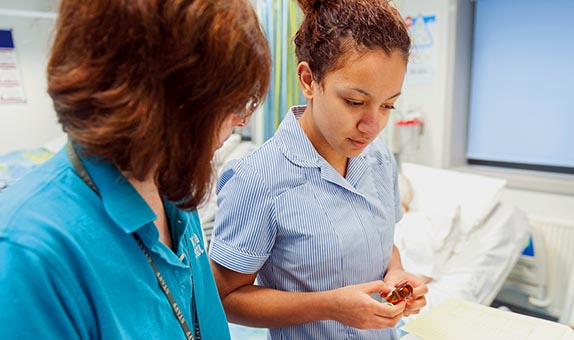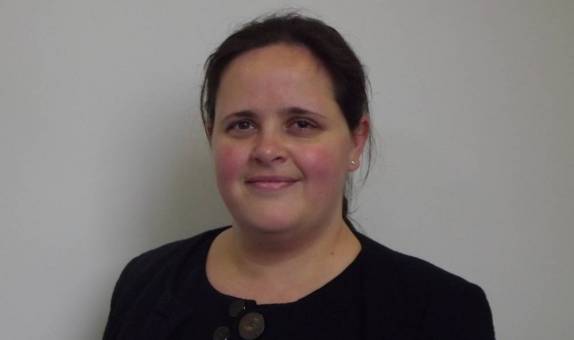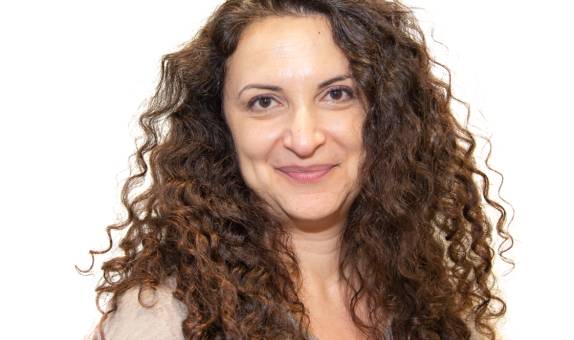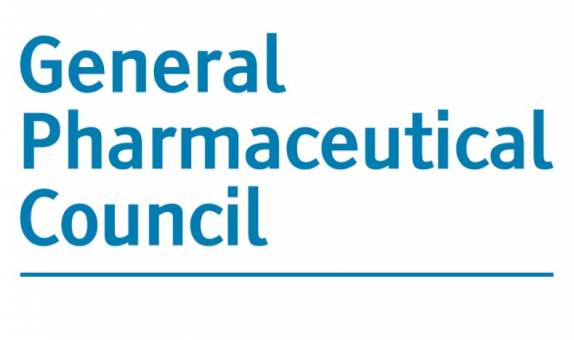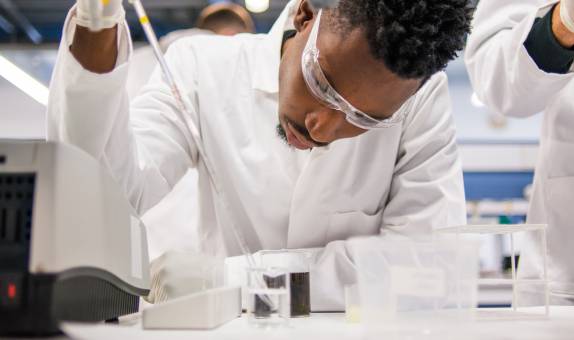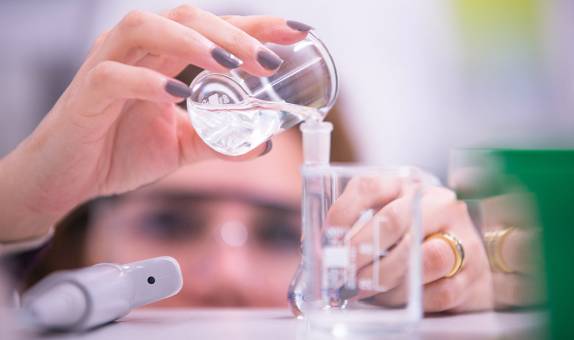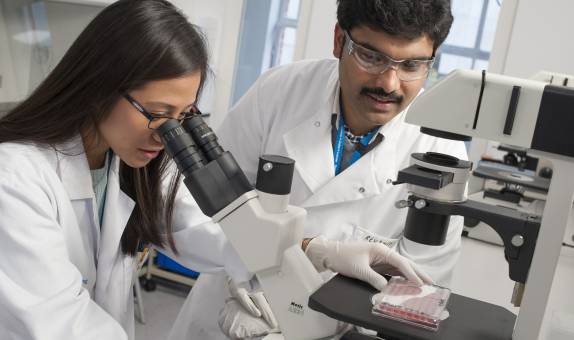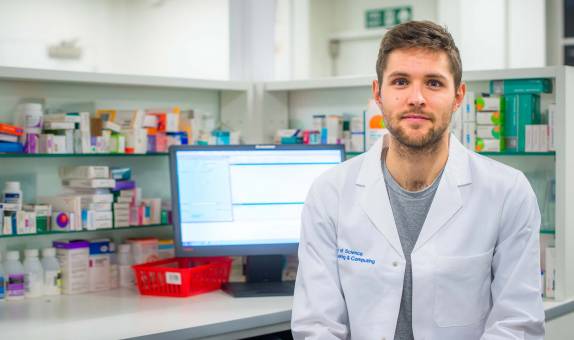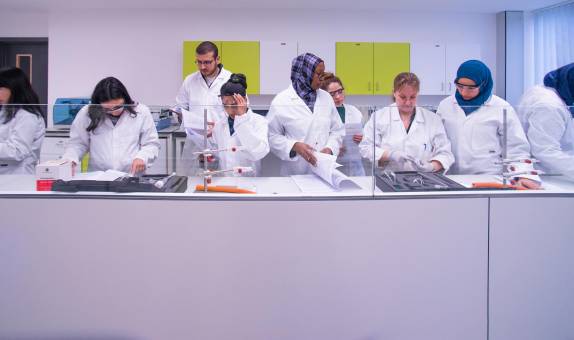Pharmaceutical and Chemical Sciences (Pre-Pharmacy) FdSc
Why choose this course?
If you know you have potential but want support before starting a degree in Pharmacy or a pharmacy-related degree, then this course could be perfect for you.
Successful completion of this course means you can join Year 2 of the Pharmacy MPharm programme.* Alternatively, you may top up your qualification to a BSc (Hons) in Pharmaceutical and Chemical Sciences.
This course studies the main areas of pharmacy and the pharmaceutical and chemical sciences. You'll take the same modules as students of Year 1 Pharmacy, plus additional modules in chemistry, mathematics and other subjects. You'll be able to sit the same assessments as pharmacy students, so that you'll be ready for your career in pharmacy. Your scientific learning will be supported by academic and professional skills development.
This course has recently been updated in line with the General Pharmaceutical Council's standards for initial education and training for pharmacists, which enables pharmacy graduates to prescribe at the point of registration.
*To join Year 2 of Pharmacy MPharm, you need to achieve an average mark of 50% overall across all modules at each level. In addition, you also need to pass an interview, calculations test and OSCE, complete a one-day placement, and provide a satisfactory DBS check and health check.
| Attendance | UCAS code | Year of entry |
|---|---|---|
| 2 years full time | F190 | 2025 |
Please note: this course is now closed for 2024 entry.
| Main Location | Penrhyn Road |
Reasons to choose Kingston University
- This foundation degree has been accredited by the General Pharmaceutical Council (GPC).
- This course offers a good grounding in pharmacy-related subjects. Once you successfully complete the course, you'll be able to join Year 2 of the Pharmacy MPharm course or top-up to a pharmacy-related BSc (Hons).
- Our pharmacy department's new GP simulation suite and simulated hospital ward, with life-like manikins, will provide you with the most up-to-date teaching to equip you for your future role as a prescribing pharmacist.
- 95.7% of students were satisfied with the IT resources and facilities on this course (NSS 2023).
What you will study
Year 1
Year 2
In Year 1 you will study core modules that cover each of the main subject areas in pharmacy and the pharmaceutical and chemical sciences. Your studies and professional development will be supported by an academic skills module.
Core modules
Academic and Professional Skills Portfolio
30 credits
This module provides some fundamental learning and academic skills for students on the Foundation Degree in Pharmaceutical and Chemical Sciences. It is intended to introduce a number of key skills which you will need to draw on in your future academic and professional careers. Maths, study skills and academic writing are covered together with a personal development folder based on work-based placements. This module is designed to aid you to find successful employment.
Introduction to Pharmacy Practice
30 credits
This module is core for students of the Foundation Degree in Pharmaceutical and Chemical Sciences. It is intended to form an introduction to pharmacy as a profession by considering its standing in the NHS and introducing the roles of the pharmacist. It provides an introduction to the legal and ethical aspects of the practice of pharmacy in the UK. Throughout the module you will develop a number of the core skills required for pharmacy practice including professionalism, IT skills, oral and written communication and numeracy.
Foundation Chemistry for Pharmacy and Pharmaceutical Sciences
30 credits
This module deals with the fundamentals of atomic theory and an understanding of ionic and covalent bonding in chemistry. It provides an understanding of nomenclature, stereochemistry, and organic functional group chemistry at a level appropriate to subsequent modules. Concepts in physical and physical organic chemistry are introduced. The module is also intended to develop ideas in chemistry with application to pharmaceutical sciences.
On successful completion of the module, you will be able to:
- Demonstrate a knowledge of the structure of atoms and molecules.
- Differentiate between inductive and resonance effects of substituents in molecules; show a basic understanding of how molecules interact with effects of solvents, both polar and nonpolar; demonstrate how electron shifts lead to the formation and fission of bonds.
- Utilise the equations involved in calculations of pH, pK and titration experiments; show how simple rate equations are used and how rate constants depend on the temperature. Calculate properties of solutions (particularly buffer solutions) such as pH and pKa.
- Demonstrate how the basic rules of chemical nomenclature are applied to simple organic compounds, including E/Z and R/S isomers; draw diagrams indicating the conformations and stereochemistry of organic molecules;demonstrate a knowledge of the main types of organic reactions: addition, elimination and substitution, for simple aliphatic and aromatic compounds; understand reactions of the hydrocarbons and compounds derived from them.
- Explain how ligands may complex and chelate to metal ions and describe the redox chemistry of these. Describe the importance of plants as a source of medicines. Recognise the structures, chirality and reactions of carbohydrates and proteins.
- Acquire reliable experimental data, manipulate it numerically where necessary and report it concisely in a variety of word processed or other formats.
Human Physiology and Infection
30 credits
This module is designed to introduce cell biology particularly with reference to the human body and pathological micro-organisms affecting it. In conjunction with biological concepts, this module is designed to pick up concepts in organic and physical chemistry covered in the parallel module (PY4130, Foundation Chemistry for Pharmacy and Pharmaceutical Sciences) and to go into them in more detail. On completing the module you will have the background biology and chemistry required to identify the intended target for disease and infection in relation to drug structure and functional groups.
In Year 2 you will have the opportunity to choose from a selection of option modules, enabling you to specialise in an area that particularly interests you.
Throughout the course there is an emphasis on a vocational application of knowledge. You will undertake a work placement in a related workplace for a minimum of one day a week - for example, in a community pharmacy or a pharmaceutical company. Work experience may be paid or voluntary and will help you put your studies into practice. We will help you find a placement if you are not already working in such a position when you start the course.
Core modules
Academic and Professional Skills Portfolio
0 credits
The Academic and Professional Skills Portfolio is designed to develop reflective learning and professionalism as well as assessing the competence and decision-making skills, in various clinical and legal elements of professional practice, of the students who are future pharmacists.
All activities need to be satisfactorily completed for you to complete Level 5 and to be allowed to progress to the MPharm programme.
Pharmacy Law, Ethics and Practice
30 credits
This module covers a number of core concepts and requires you to demonstrate proficiency in use of your learning at a higher level than other modules. It is a module that reflects the key professional regulations, law and obligations required to become a pharmacist, as dictated by the governing professional body and government legislation. The module advances your knowledge in relation to legal and ethical practices related to pharmacy. It builds on teaching you the skills you will need for professional practice such as analysing prescriptions and dispensing relevant products, interpretation and application of law using problem solving, and using professional judgement. Approximately 20% of the teaching time is spent in practicals and workshops to emphasise these concepts.
Wellbeing and Health
30 credits
This module introduces you to the principles of the role of a professional pharmacist and the various responsibilities in providing healthcare. You will explore the principles of health, wellbeing and prescribing attributes. You will gain the knowledge to enable you to respond to symptoms, recognise adverse drug reactions and other interactions. You will also develop communication skills and learn about health promotion.
Fundamentals of cell and human physiology
30 credits
This module gives an overview of the fundamentals of cell and human physiology. Emphasis is placed on understanding the basic structure and functions of cells, organelles and biomolecules and how these interact with each other to form tissues, organs and organ systems.
You will be introduced to the structure and functions of organ systems in health and selected disease states; the control of homeostasis and the rationale for the use of laboratory investigations and diagnostic tests to diagnose and monitor selected diseases. You will also gain an insight into the pharmacological and non-pharmacological basis of treatment and management of selected cases of altered health to promote healthy living in a patient-centred manner.
Approaches to Pharmaceutical Manufacturing
30 credits
This module introduces subject content that underlies industrial-related areas to provide employment in drugs development and pharmaceutical industry sectors. It incorporates elements of pharmacokinetics, drugs development and manufacturing, and pharmaceutical analysis.
You will be equipped with the basic knowledge of pharmacokinetics concepts and parameters and relate drug physicochemical properties and formulation-related factors to bioavailability and pharmacokinetics profile.
The module also gives you an overview of the pre-clinical phases of drug development process with a special focus on the pharmacokinetics and formulation development stages, followed by topics involved in scaled-up production and manufacturing.
Future Skills
Knowledge to give you the edge
Embedded within every course curriculum and throughout the whole Kingston experience, Future Skills will play a role in shaping you to become a future-proof graduate, providing you with the skills most valued by employers such as problem-solving, digital competency, and adaptability.
As you progress through your degree, you'll learn to navigate, explore and apply these graduate skills, learning to demonstrate and articulate to employers how future skills give you the edge.
At Kingston University, we're not just keeping up with change, we're creating it.

Entry requirements
Teaching and assessment
Teaching include lectures, workshops, tutorials and practical classes.
Who teaches this course
This course is delivered by the School of Life Sciences, Pharmacy and Chemistry.
The School of Life Sciences, Pharmacy and Chemistry offers an outstanding and diverse portfolio of undergraduate and postgraduate programmes in biological and biomedical sciences, chemistry, forensic science, pharmacy, pharmacological and pharmaceutical sciences, and sport science and nutrition.
We've invested heavily in the development of new facilities including laboratories for teaching and research to provide students with access to ultra-modern equipment in a wide range of teaching facilities.
Postgraduate students may run or assist in lab sessions and may also contribute to the teaching of seminars under the supervision of the module leader.
Facilities
Pharmacy simulation suites
In 2022, our two hi-tech pharmacy simulation suites were opened at Kingston University by healthcare pioneer Professor Dame Elizabeth Anionwu. The simulation suites consist of a mock hospital ward, pharmacy dispensing suite and GP surgery, and are equipped with the latest technology including patient simulator manikins that students can administer drugs to and monitor their pulse and breathing. These suites enable students to learn in a safe environment that simulates real-life healthcare settings.
The hospital ward features six beds with drug cabinets and curtains, a nurse's station and equipment that can be used to assess students' bedside manner and debrief them on best practice. The ward also leads into a pharmacy dispensing suite where students can practice prescribing the correct medication, and the right quantity, for certain illnesses. The GP suite has six cubicles for students to simulate seeing patients within a surgery environment, with desks and pedestals. Three of the bays have couches and the other three have chairs for patients to be examined.
Pharmacy lab:
Central to your learning is our pharmacy practice laboratory, designed to allow you to experience what it is like in a real pharmacy and finesse your skills before you start working in the health service. Based at our Penrhyn Road campus, the centre includes:
- 40 medicine-dispensing stations
- a pharmacy counter
- a consulting area
- computers connected to the Pharmacy Manager System (used in many local pharmacies).
You will practise your people skills and diagnostic skills through role plays, taking it in turns to play the patient. Other role plays include advising doctors (usually played by experienced tutors) on how to deal with prescribing errors and clinical problems. When dispensing prescriptions you will have to make all the same checks that you would make in a real pharmacy, including:
- analysing prescriptions to check they have been filled in correctly by doctors
- checking clinical issues such as how one medicine might interact with another
- advising pretend patients on how to take their prescriptions.
Other facilities:
There is a wide range of facilities for practical work at our Penrhyn Road campus, where this course is based. You will have access to a modern environment with the latest equipment, including:
- the Eadweard Muybridge building with state-of the art laboratories;
- specialist equipment, such as:
- gas and liquid chromatography
- electron microscopy
- a range of spectrometers, including mass spectrometers, infrared spectrometers and nuclear magnetic resonance spectrometers
- nuclear science equipment
- thermal analysis
- x-ray diffractometers
- electrochemical analysis.
- computing laboratories and a team of IT technicians to offer assistance
The Library offers:
- subject libraries, plus a free inter-library loan scheme to other libraries in the Greater London area
- online database subscriptions
- a growing selection of resource materials.
Course fees and funding
Additional costs
Depending on the programme of study, there may be extra costs that are not covered by tuition fees which students will need to consider when planning their studies. Tuition fees cover the cost of your teaching, assessment and operating University facilities such as the library, access to shared IT equipment and other support services. Accommodation and living costs are not included in our fees.
Where a course has additional expenses, we make every effort to highlight them. These may include optional field trips, materials (e.g. art, design, engineering), security checks such as DBS, uniforms, specialist clothing or professional memberships.
After you graduate
Careers and progression
Through a pharmacy or chemistry degree you'll be well prepared for roles in community or hospital pharmacies, or in the pharmaceutical industry. Further study can lead to a career as a registered pharmacist or in drug/medicine research.
Accreditation
This course is accredited by the General Pharmaceutical Council, until 2020 entry, to allow graduates who have attained the required standards direct entry to Year 2 of the Master of Pharmacy programme.
What our students say
Work placements
How you can work in industry during your course
All students undertake a placement in a business or NHS environment throughout the course, for example in a community pharmacy or a pharmaceutical company. This will be for at least one day a week and can be either paid or voluntary. An agreement is set up between the employer and the University recognising that elements of your work will contribute to your studies.
We encourage you to find your own placement, but can also help you find a suitable employer if necessary.
Key information set
The scrolling banner(s) below display some key factual data about this course (including different course combinations or delivery modes of this course where relevant).
Course changes and regulations
The information on this page reflects the currently intended course structure and module details. To improve your student experience and the quality of your degree, we may review and change the material information of this course. Course changes explained.
Programme Specifications for the course are published ahead of each academic year.
Regulations governing this course can be found on our website.



